By Casey Rafter
Detroit-born storyteller, multi-instrumentalist, composer, playwright and puppeteer Dalrymple MacAlpin has spent much of his life interpreting the vivid images of his dreams into the art he presents to his audiences. His mythical band Dalrymple and the Wild Daimons, often in matching shades of green, has enchanted Sacramento audiences at Harlow’s and The Russ Room, sometimes found performing in Nevada City where he mounted his musical “Make Believe.” MacAlpin’s most recent project is a comic book “The Wild Daimons,” which saw the release of its first issue “Children of the Void” in November of this year.
Sacramento-based hip hop and R&B performer and producer Christian Gates began piano lessons at 6 years old. Now as The Philharmonik, he creates vibrations with voice and keys that’s enveloped his audiences in a blanket of thought provoking sound since 2016. His second album, Kironic, was released in July with subsequent short films released for each track on the album.
The two creative souls huddled for a chat in the multimedia room of Sacramento State’s award winning student news publication, The State Hornet.
Dalrymple: I found an amazing community of artists where I live and people who are into creating. If you build it, they will come. The “they” I have found are in Nevada City. If you have a dream and a vision, there’s just so many people, there are so many talented artists willing to lend their hand to somebody’s visionary dreams. It definitely feels like home. And of course, the Yuba River is my sacred ground now.
The Philharmonik: That’s awesome.
Dalrymple: I was wondering, how long have you lived in or near the Sacramento region? And does it feel like home?
The Philharmonik: Well, now that I’m 30 years old — I’ve been here since I was 7 — so I’ve been here for 23 years. I was originally born in Cleveland, Ohio, so I’m a Midwestern kid, just like you. This place is my home. I’ve experienced a majority of my life and the majority of my brain development in this city. I have grown all my friends here. I’ve learned everything to become who I am at this moment here. I don’t see myself leaving Sacramento anytime soon. But you know, I’m open to exploring the world and having my perspective shift and change over time, as life tends to do to us.
What do artists need to make success a reality? People resources? Do you feel that those elements are readily available in this area? I remember you were talking about in Nevada City, everybody is incredibly supportive of whatever art form you decide to take on. What kind of examples would you say in Nevada City where that personally worked for you?
Dalrymple: Well, the first question “What do artists need to make success a reality?” The very first thing is mindset. If you want to be a successful artist, you have to have a successful artist mindset and not get sucked into doubt and inhibitions about releasing your music into the world or art. You just have to keep creating, being inspired and stay positive about what it is you’re creating. Because you’re ultimately communicating. Art is communicating, so having that clear focus mindset of what it is you’re communicating to the world is what is ultimately the most successful thing to make an artist successful.
As far as people and resources in my area, I just finished this incredible business course. … It’s this place called Sierra Commons and it’s their business igniter course. For artists, it’s an incredible resource because most artists have no concept of the business side of art and how to put it out into the world. They’re just like “I just create.” And this was mind blowing for someone like me, who’s just been a creator my whole life: getting the foundational tools to make a successful business. Get a sole proprietorship, get an LLC, start defining your audience, start doing these essential things to ensure you are successful. Because if you start a business, you want to be successful. That was incredible. And as far as people, there’s so many different theater people up there for prop building, set design, directing. Tom Waits’ recording engineer’s up there, Oz Fritz, and we’ve been working with him for over a decade and he’s just a Grammy Award winning engineer in our hood and I love that guy. It attracts the artists. There’s a lot of elements available.
So Christian, what do you think? Are there elements available in your area?
The Philharmonik: What you were saying earlier really resonated with me and I tend to view success in that way, even though it took a long time for me to realize what success as an artist really means. Let me define artistry from my perspective first: just a way to creatively express who you are in whatever environment, despite what’s happening in the external world, non judgmentally, fully freely. I feel that is success as an artist.
I’ve had to change my perspective of that over the years, because it was very personal for me, like “I want to reach this status. I want to be at this place,” instead of realizing that the reason why I create this is to bring myself out to the world. I feel like those elements are very much available. And they work in both ways, both with and against you. If you look in the wrong places, I feel like you’ll find the things that are the antithesis of what it means to be a successful artist. If you search within yourself, you’ll find the resources and you’ll find the people anywhere you go because you’re evolving as a person as much as you’re evolving as an artist. And I don’t think those two are mutually exclusive. I think both of those things are essential to one another.
Dalrymple: Definitely
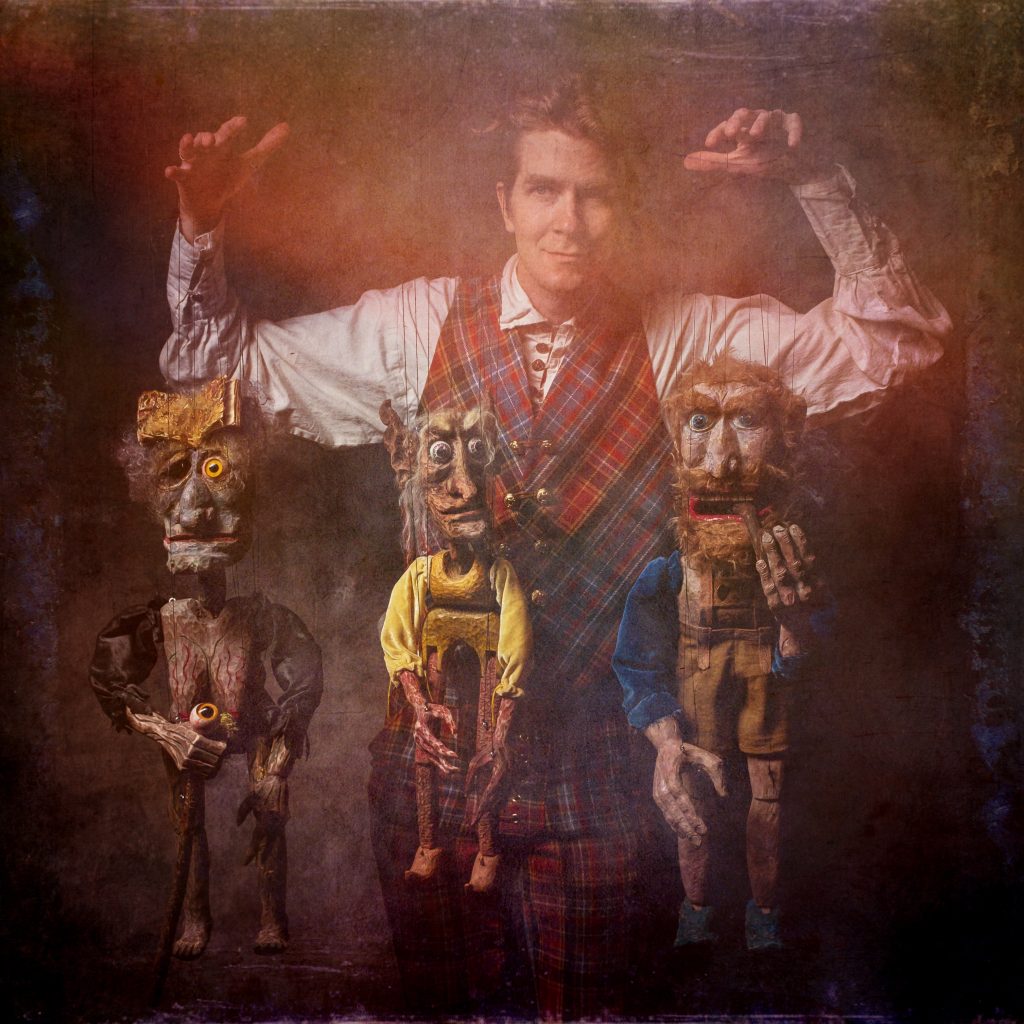
The Philharmonik: You were saying with business — that transition to also being a successful artist in a practical sense is a very, very hard transition for me especially to make and talking about coming up with the LLC, becoming responsible fiscally and doing all the practical stuff that nobody wants to do is really where you get your bread and butter from. And when you’re expressing an art, it feels like you want to be great at this one thing, but life requires us to be proficient at many things in order to make a living. If any artist is out there struggling with how to take their art to the next level, learn the tedious art of business, of reading and learn to fall in love with learning again.
Dalrymple: Sooner rather than later. … If you’re struggling through something, have you ever doubted your commitment?
The Philharmonik: We were talking about the elements being readily available in the area, but I’ve kind of gone through a shift recently in the way I view the world. I don’t rely on the external world for anything and the external world doesn’t really owe me anything, so I have to find my way. Finding those elements relies on me seeking out and going to places that I wouldn’t go and exploring things I wouldn’t usually explore. Trying to get out of my comfort zone and just actually live life, I think is the way you become that successful artist. It also depends on purpose. What is the purpose for why we make art and why you make art, would you say?
Dalrymple: That’s like the great “why?” Why are we even doing this? For me, it has become distilled down into creating a world like Willy Wonka talked about: a world of pure imagination. The make believe world of Mr. Rogers. To remind people to have this innocence and the power of creativity and imagination. The name of my project is The Wild Daimons, and the Daimon being this Greek word, which is a personification of the destiny and the fate you chose for yourself before you were born on this planet. The ancient Greeks talk about this world where the soul is looking down and you sense a purpose, a reason to be born in the first place. And that idea really resonated with me.
We all have a reason for being; something it is we’re supposed to do and whether that’s great or small or it’s personal transformation, whatever it is. But then it is that we drink from the river of forgetfulness, and then we are born and those who were not saved by wisdom drink more than is necessary for that is the reason we remain ignorant of our great spiritual destiny. But we are sent to this earth with a Daimon. Sort of what the Christians would call a “guardian angel,” or the Romans called a “genius.” And that’s where our word for genius comes from. A genius is someone who’s like tapped into their daimon on that protector, the guardian of your fate. And so that is the purpose. And the reason for why I do what I do is to connect people to that source of their personal power.
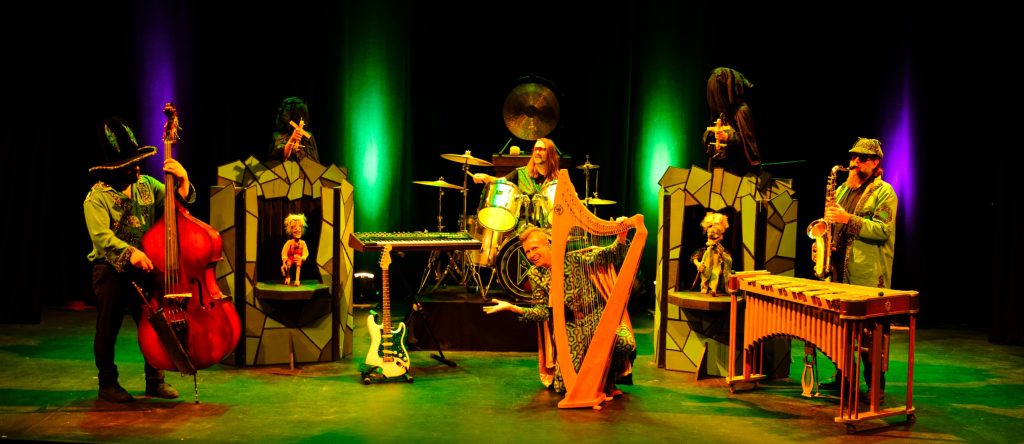
The Philharmonik: I think that should be the goal of all art. I feel like that’s the vocation. The destiny of why we do it is to have people really open up to that genius, that diamond, that guardian angel. Connecting the soul to the mind and the body.
Dalrymple: That’s what Rumpelstilzchen is, for me. He is like a daimon. You can have more than one; they manifest in different ways. And you could call it the psyche or the unconscious or even an alter ego, but it exists. And it is there to enlighten us to the reason that we chose to be here in the first place, which is really empowering, because I feel like a lot of people are struggling with that. We live in this crazy age of distraction and the embarrassment of riches and the embarrassment of choices we have at our fingertips at all moments. People are out of their bodies, they’re not in their physical body. They’re astrally traveling all the time in these digital realms. Surfing the internet, we’ve lost that sense of soul, of home, our psyche. Then it becomes demonized, and the daimon becomes a demon. We neglect the power or abuse it — eradicate it from ourselves or ignore it, repress it.
The Philharmonik: I mean, that’s what we’re programmed to do, I think.
Dalrymple: I know, it’s sad.
The Philharmonik: We run from pain. We don’t really appreciate all the elements of life that create this unique experience that we’re living out. This is a once-in-a-lifetime thing and a once-in-a-lifetime moment, and it doesn’t last forever. I always have to remind myself of that when I want to go back to that comfortable societal programming. It’s a courageous act to tap into that daimon: that fullness of self. But it’s also so liberating because once you taste it for the first time, you begin to ask yourself, “What have I been doing with my life?” And sometimes it feels like a dark night of the soul. It’s like, “Who am I really?” And really, it’s like, that’s the beginning —
Dalrymple: Know thyself.
The Philharmonik: — of the actual journey. I think the biggest thing I learned was that, going through a dark night in that place, is that you are the light at the end of the tunnel and you reach that light by taking every step towards yourself. And everything we do is a way of doing that. There’s always some type of wisdom we can learn from it. Something we connect to, something we can help to evolve us.
Dalrymple: I feel that there are these spirits out there who have all this wisdom, who are like floating around us. And if we tune our human antenna in those directions, we can receive and transmute these ideas to create change and transformation, even on a personal level.
The Philharmonik: What happens when you doubt your commitment? When you’re not tapped into that daimon? When you’re tempted to want to go to that place of feeling like you’re separated from your passion?
Dalrymple: That’s a hard question, because it’s been a long time since I’ve been disconnected, so I don’t remember what it was like. When you doubt, that’s when you allow yourself to become distracted and not allow yourself to go deep within what it is that is asking to be called forth into the world. And you let other things consume you. And then you can become consumed by the daimon, too. Carl Jung, the Swiss psychologist, talks about his own daimon. He said he was in the grip of his daimon and it almost forced him to do these tasks to the detriment of his personal relationships with his family, with his wife, his children, with the people of the world at large that he was in the grip of it so strongly. And you see his body of work and you think, “How did this one man create this much in his lifetime? He must have never slept?”
The Philharmonik: Well, Nietzsche. Nietzsche is exactly the same way. You become so super sane that you become insane.
Dalrymple: You gotta be careful to walk in the threshold.
The Philharmonik: I went through that. And I wouldn’t even call it a doubt for me, because it was really a shift in perspective. Am I only my art? Why am I defining myself through this one channel when I am this whole universe of experiences, and loves and passions that go beyond the realm of playing keys — music?
Dalrymple: That’s just a tool. That’s just an instrument in front of us. There’s so much more.
The Philharmonik: What do you love doing outside of puppeteering? Outside of the music realm that really is in line with who you want to become? A passion that’s adjacent to the craft?
Dalrymple: I would say being deep in the heart of nature. That is an art form to me. Nature is the greatest artist. And just being out there in the wilderness is where you charge your batteries. That’s where I go to refuel and get inspired. Climb the mountain and get to the heights and put your head in the clouds literally. My other passion would be being in nature. What about yourself? When you remove yourself from your art, where do you go to charge your batteries?
The Philharmonik: Usually, I feel overwhelmed by hyper focusing or I feel claustrophobic by my own art. I need to spread my wings and fly out. I started researching and learning other skills because I want to be more than a great artist and a great musician, I want to be a great partner, a great son, a great sibling, a great human being. And what really constitutes that is becoming the best you can be in all areas. It’s not a competitive thing. I have so many of these things I want to explore and I know that it’s going to take some work to get there. I want to learn how to fly a plane. I see myself flying over Alaska, just endless snow. I’m having these visions of being a really good cook and cooking these great meals. It’s been something that’s recent.
I would never say it was doubt, but I feel that the first passion that we have in music should be our foundation to expand. If you’re successful here and you’re loved and you’re cherished by the external world and it’s giving back to you, it’s a reciprocal relationship with the external world around you. Imagine if you put that effort into something else you’re passionate about. I think it’s scary to pick up and start from square one and do the work again, but that’s literally what we’re doing for our entire life. You gotta start somewhere.
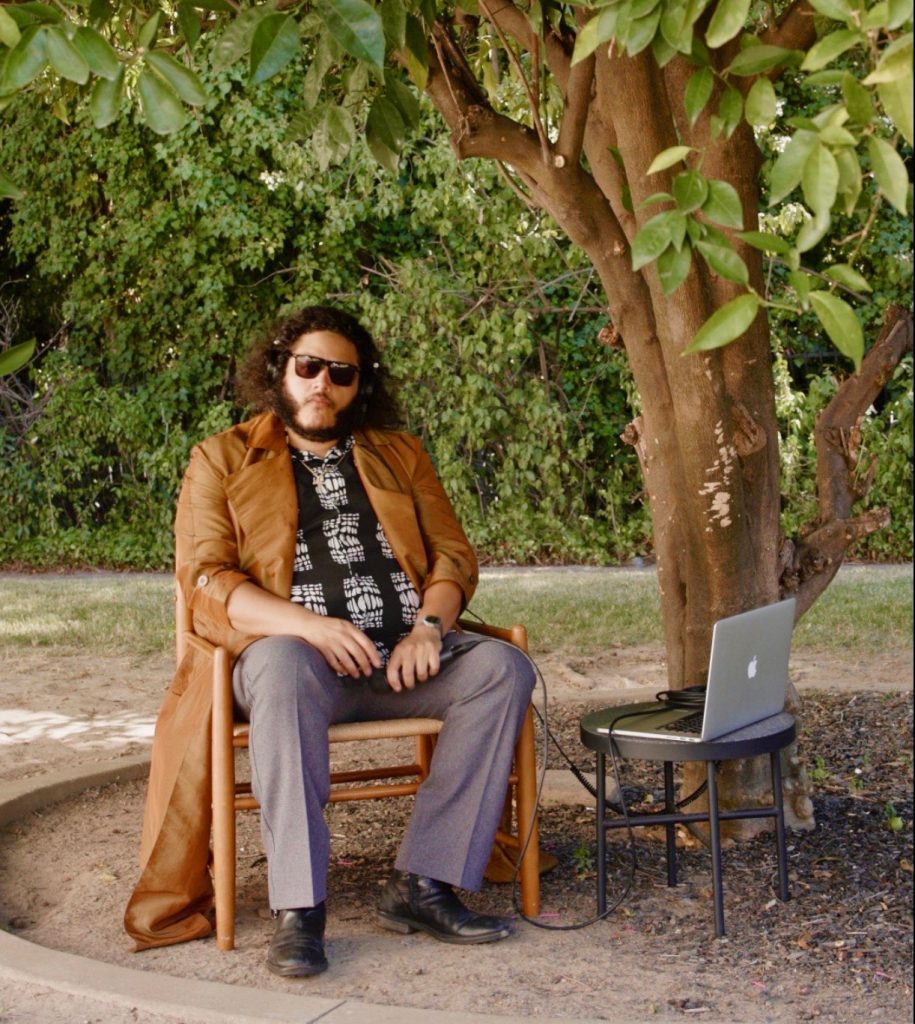
Dalrymple: If we’re not evolving, we’re dying.
The Philharmonik: Exactly.
Dalrymple: I feel like the way to get out of your head, like you’re saying, you have to pursue these other avenues. I have a family, I have a son and a wife. Like you said, I want to be a good father. I want to be a good partner to my partner. And I do have to figure out ways to balance the obsession with art because it becomes this like obsession that can totally take you over if you let it and I don’t have any problem letting it. Let’s do this. We’re about to do a show this Saturday and it’s just getting more and more ambitious “Oh, we need to add this lighting person. I want to make this the best thing it can be.” It’s like getting ready for a wedding. But yet my wife and I haven’t actually gotten married yet. I just call her my wife, because she pretty much is. She’s also an artist, so we talk about this stuff a lot. Talking about what is struggling as an artist, communicating, finding your voice, finding your audience. So it’s a great partnership, because we pull each other out of our respective worlds, and come back to the humanity of it all. Look at each other in the eyes and remember why we’re here.
The Philharmonik: That’s a beautiful thing. And I think that a lot of us confuse our commitment to the passion for really just taking time to do other things. I felt like there’s always been this underlying rat race to want to be the best of the best. To find the purpose for improvement isn’t really for the sake of evolving and experimenting, but it’s really more out of a place of not feeling good enough. …
And I feel I’ve moved so far in one direction with music. I’ll never be done with it and I’ll never stop doing it, but now, it’s not my end all be all. It’s not what I put my identity into. A lot of people would say you’re not pursuing the passion. That’s not it at all.
Dalrymple: They just don’t get it. They don’t get it.
Nowadays, the word branding is just so — people go, “You’ve got to brand your art, what’s your brand? What’s your elevator pitch for your art?” And it just becomes this frustrating thing that you just keep hearing about all the time. Distilling down these ideas into one sentence. Have you distilled down what represents you as an artist in one sentence?
The Philharmonik: That’s a good question. And I haven’t thought about it as an artist.
Dalrymple: Like what it is you do. For me, I’ve been struggling with this and I’ve been not able to connect with my audience because I keep changing as an artist, I’ll go from medieval folk experimental music, to then writing plays about Irish mythology, then getting into my Detroit Rock and Roll roots, and like Iggy and the Stooges vibe and then going into puppet mysticism. … But people have a hard time latching on to you as an artist if you keep changing all the time. I found you have to commit to something to get the world to recognize you as this one thing before you decide to change. For me, I believe I’ve finally formulated an umbrella that I can commit to: the words “mystical puppet rock opera.”
The Philharmonik: I call myself the Philharmonik. There’s two meanings of it. The first one I did personally, for me. You hear the word Philharmonic in a lot of national orchestras: New York Philharmonic, LA Philharmonic. … The Philharmonik is a one-man orchestra because I’m literally creating from start to finish. From the beats, to the instruments, to the writing of the lyrics, to the singing and the recording and the engineering, I’m doing all of it. And there’s nobody else in the studio with me unless I have an artist featuring.
But I looked up the actual definition in Webster’s Dictionary of what Philharmonic means. It means devoted to music. I felt like a lot of my life was devoted to music. It’s what I learned to master, whatever genre it was. Because music is so universal, you can be as diverse with it as you want. I mean, what do people consider music to their ears? Maybe I’m music to people’s ears. And maybe that’s not just in the form of playing an instrument or singing a song. Maybe it’s the wisdom that I bring. Maybe it’s the experience in my story that I bring. I want to be music to people’s ears when they listen to me. I think that would define me now.
Dalrymple: Do you feel like you’ve arrived at that for a long time? You haven’t had the struggle of people not being able to identify with who it is you are and what you do?
The Philharmonik: I think the biggest struggle was me not identifying with it. I don’t think it had anything to do with other people. I’d recently came to this level of self-actualization. And I feel like it’s my first one. And I know you’re going to probably go through many of those levels of “Oh! This is who I am. This is what I believe in. This is what I represent.
Dalrymple: Hopefully it never stops.
The Philharmonik: The first one is a very, very monumental shift in how you see life. Mark Twain said, “The two most important days in your life are the day you’re born and
The Philharmonik and Dalrymple: “the day you find out why.”
The Philharmonik: This awakening was the why. I think that change had to be with me, not with other people. I never had a problem relating to other people. I felt like my soul was ahead of me. That was interesting, because you kind of feel like a hypocrite, talking about these higher wisdoms. I was foolish enough in thinking that I could bypass those because I knew that knowledge, but there’s much difference between knowing and doing. The doing part is the hard part. So now I just be quiet and try to live life and tell people you got this and don’t quit. Because that’s really the most valuable bull advice I’ve ever gotten when like, it’s hard. And you go through a lot of trials and tribulations, but you feel like you were going to reach this place in your mind where it all dissipates once you achieved what you wanted to achieve in your own mind and to realize that life just doesn’t work that way. You have to be able to learn and grow through that. And that’s what I want for people to know, don’t quit.
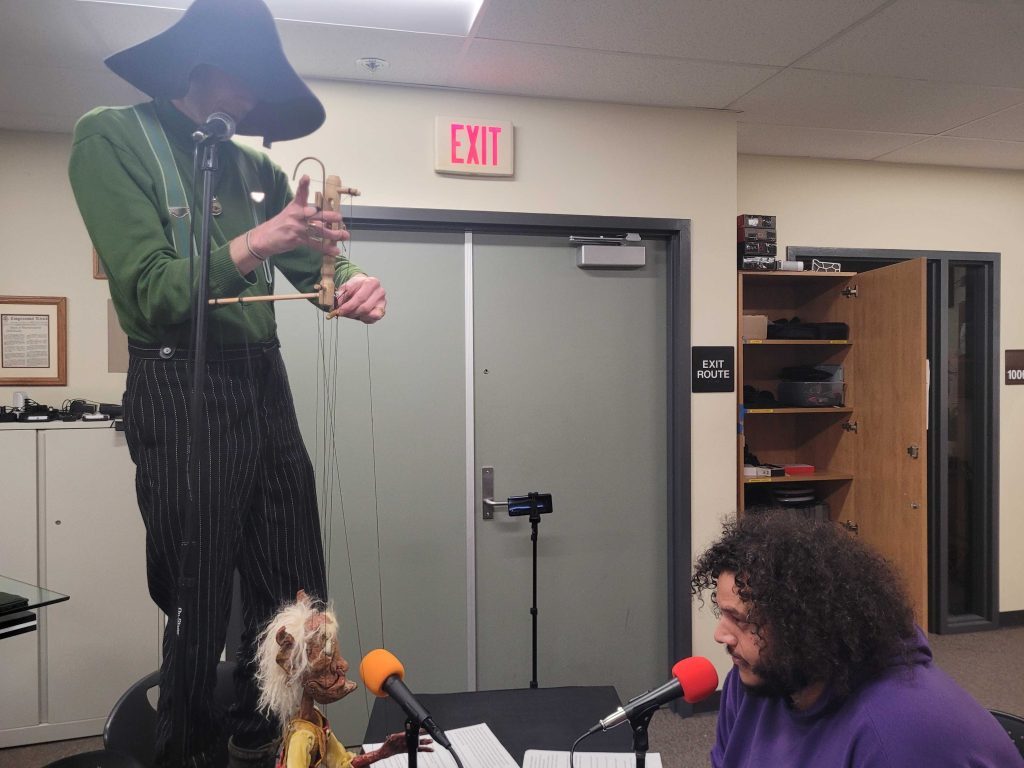
Dalrymple: That was advice that helped me in the past, for sure. There was always someone there telling me that. I was really dedicated, but it was just nice to hear [that] if you stick with something, eventually, you will find yourself inside of it. You will find the transformation out of it. You will be constantly evolving and transforming through your art. And I found that to be true for sure. And I have never felt like I had any other choice but to do it. Not even talking about money … I have to do this, whether there’s money there or not for it. That’s not why I’m doing it. I’m doing it because there is no other choice. I’m in the grip of the daimon.
The Philharmonik: That’s beautifully said.
Dalrymple: Just learning how to translate that to the world is the constant evolution.
This conversation has been edited for length, clarity and flow.
This story is part of the Solving Sacramento journalism collaborative. Solving Sacramento is supported by funding from the James Irvine Foundation and Solutions Journalism Network. Our partners include California Groundbreakers, Capital Public Radio, Outword, Russian America Media, Sacramento Business Journal, Sacramento News & Review, Sacramento Observer and Univision 19.

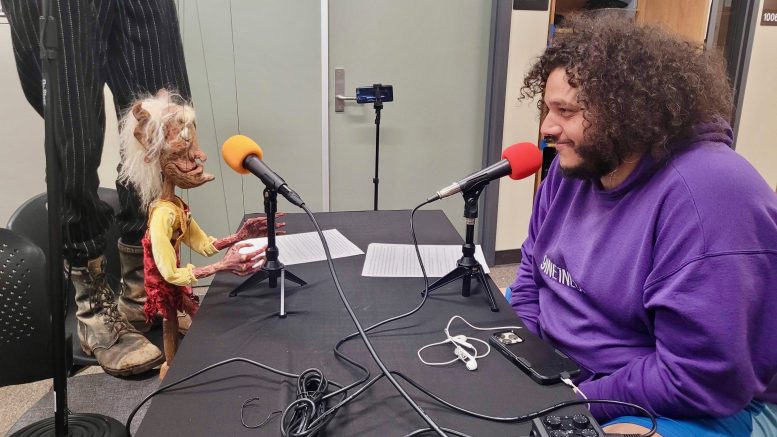
Be the first to comment on "Creativity in the Capital: Dalrymple MacAlpin and The Philharmonik discuss personal transformation, artistic endeavors and finding ‘the great why’ "